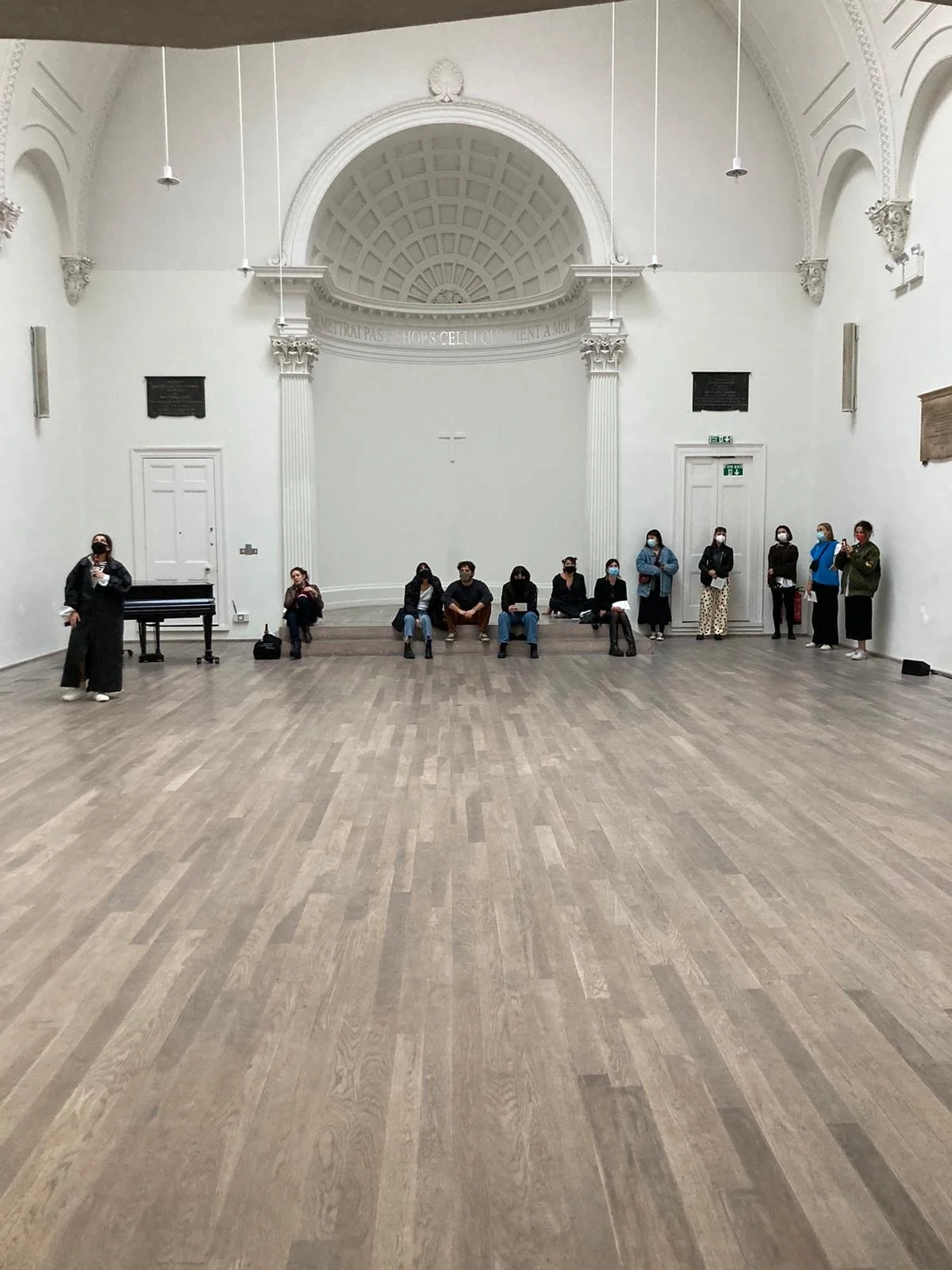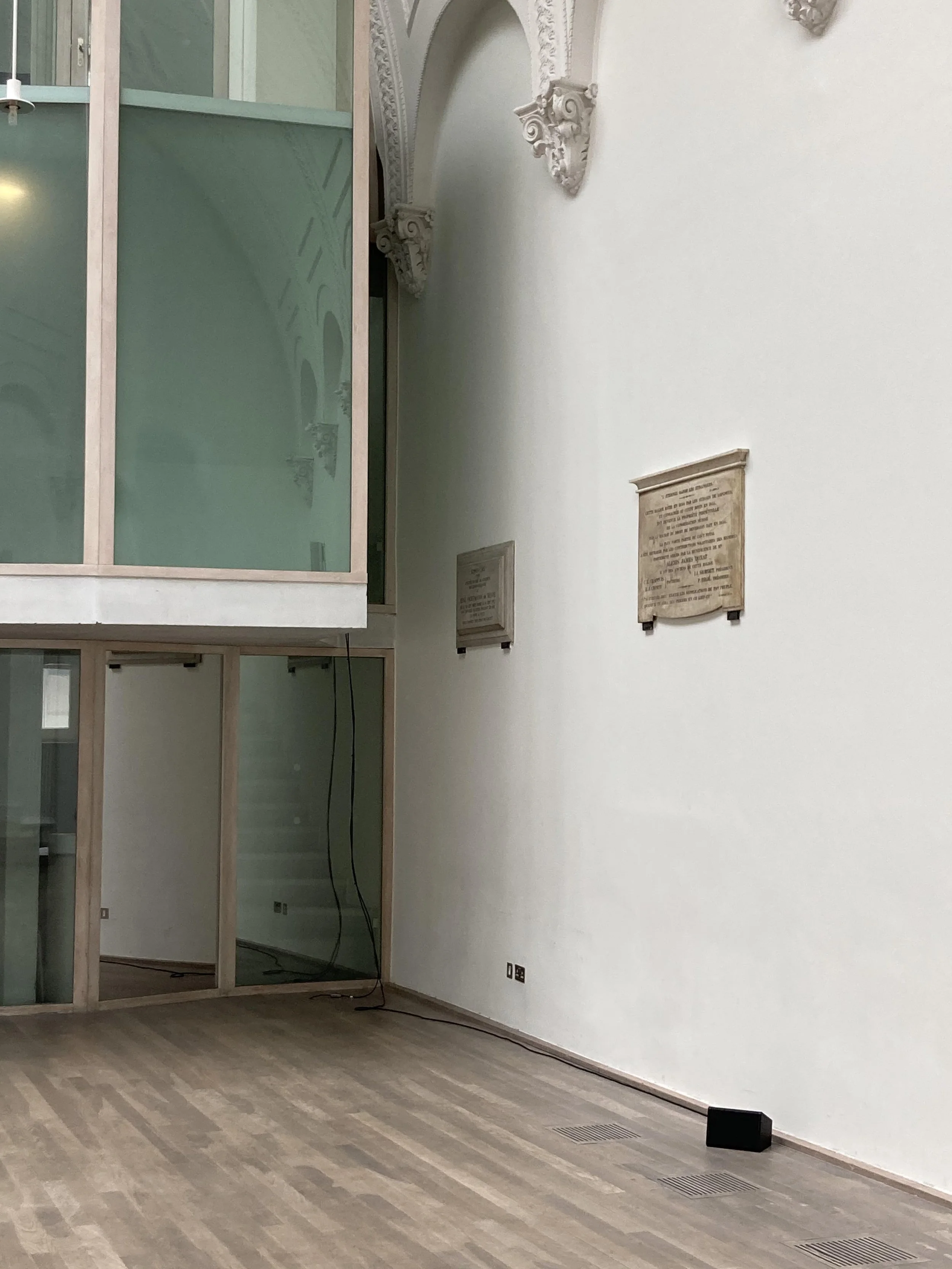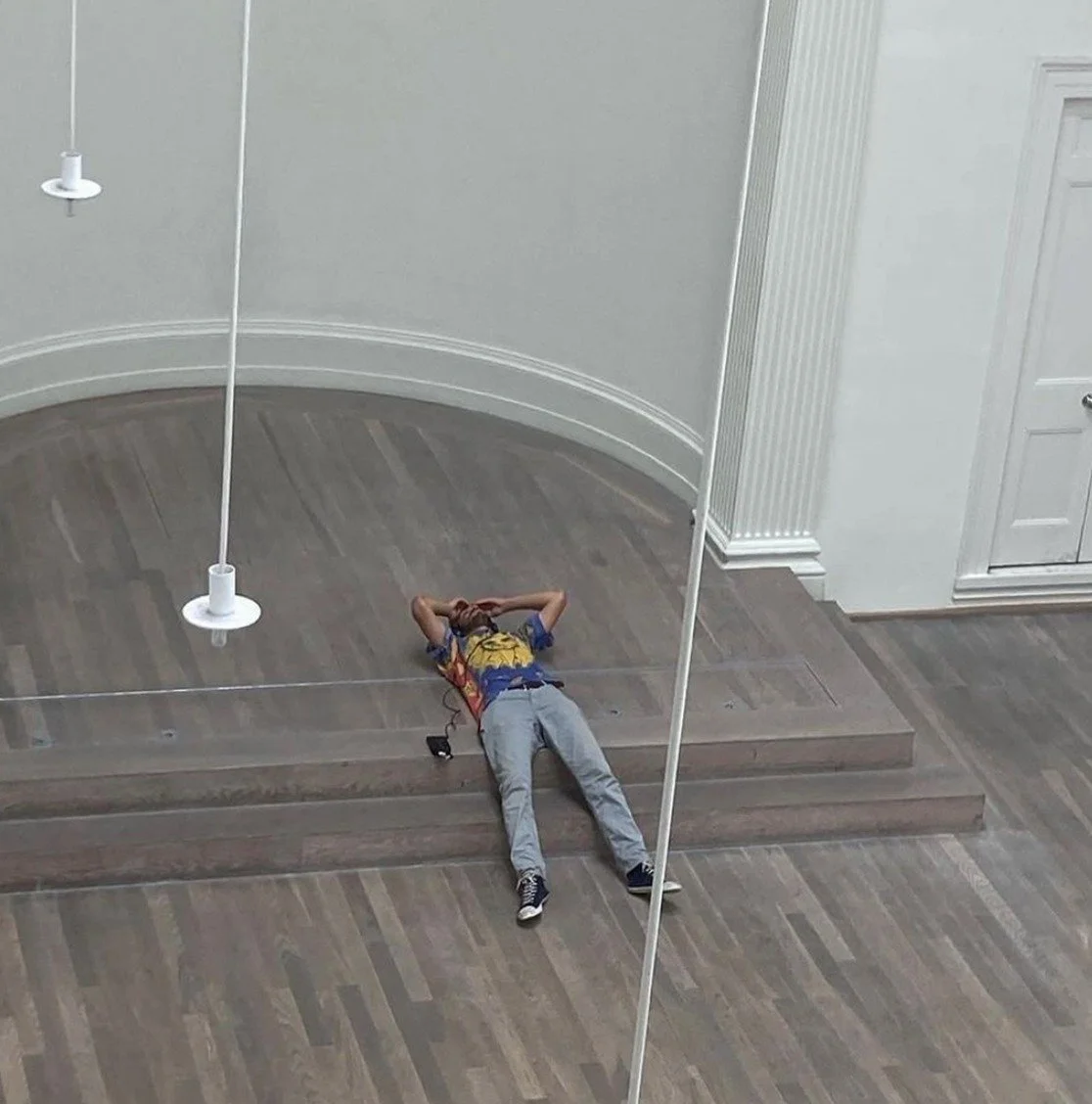WEEDS
An installation by Marguerite Humeau
The Swiss Church, June 2022, London
Weeds is a tribute to past and present women who have impacted the development of medicine but whose knowledge and names have been put aside from the official narrative. The sacredness of the church and the use of sound as an activator of ghosts from the past leads the audience into a meditative state. Throughout history women have been midwives, pharmacists, doctors, botanists, and healers. They contributed to the development and research of medicine, and they had an important role in their community. Nevertheless, many have been cast out of the official narrative of medical history. Their practices have often been associated with witchcraft and they were victims of the Witch Hunts, which raged in Europe between the 14th and the 19th century. A considerable body of knowledge surrounding plants and their healing effects has been lost. Led by the repeated sound of a gong, a voice – musician Lafawndah – lists names of women and fragments of their history. Through the simple but caring act of naming them, Marguerite Humeau brings them back to the very centre, giving them a voice, a power, and a presence. Weeds is the result of an important work of investigation and research by the artist, typical of her creative process. The acoustic quality of the Swiss church and its multi-layered infrastructure offers the possibility of a wide range of musical movement. With a surrounding sound system, Weeds amplifies the architecture of the church as a place to remember the living and connect with the deceased. Plunged into a meditative state, the audience is invited to walk around and take the time to listen.
Rendering the invisible visible: a series of conversations
How do artists and activists contribute to the collective understanding and appreciation of the botanical world? It is within this context that the sound piece "Weeds" by Marguerite Humeau serves as a starting point for conversations. Delving deeper, we confront the paradoxical nature of plants, which serve as universal symbols but remain widely misunderstood forms of life on our planet. In these conversations, researchers and activists Salomé Voegelin, Gina Buenfeld, Aliya Say, and Rasheeqa Ahmad further enrich the exhibition's explorations, shedding light on the vital role of artistic practices to nurture a deeper connection between humans and non-human worlds.
-
Curators: Marie de Ganay & Léonore Larrera
Sound Engineer: Grady Steele
Graphic design: Alice Villiers
Thanks to the Swiss Church, London, Goldsmiths University & db audiotechnik









